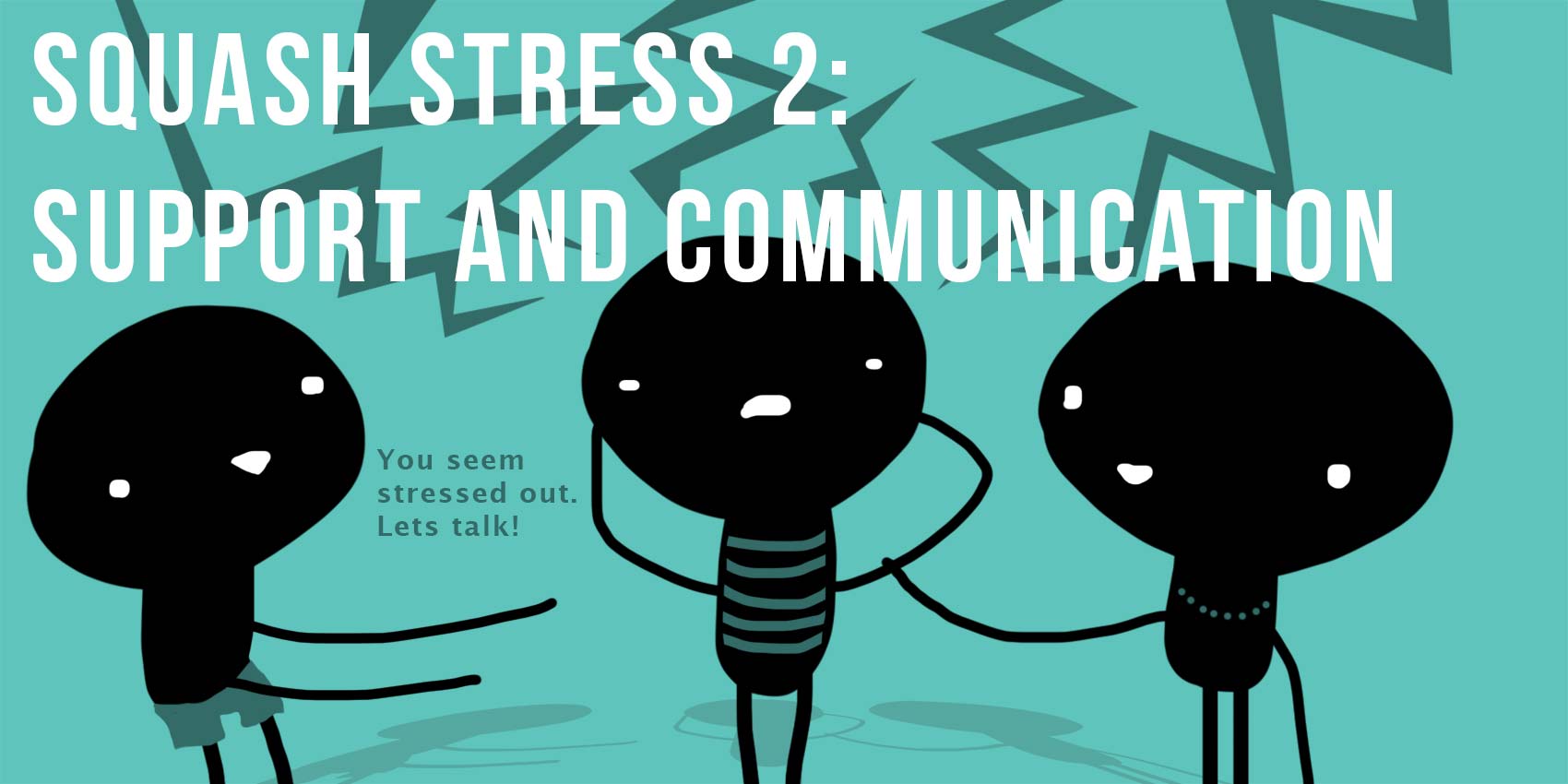21 Mar Squash Stress 2: Support and communication

Support
Support is a lot like someone having your back. Ever heard that expression? When someone’s got your back they are looking out for you; they support you and help you through good times and bad. Does someone have your back?
One way to answer that question is by using the “five finger” rule. The “five finger” rule means that you have someone you trust in at least three of these five areas of your life: 1. Family, 2. Friend, 3. School, 4. Community (including sports or drama), and/or 5. Religious Affiliation.
When you have several people to whom you can turn, you are less likely to feel stressed. This doesn’t mean you have to share everything on your mind with them all the time, but just talking, hanging out and knowing that you have someone who has your back helps decrease stress.
One way to strengthen your support system is to focus on building relationships with positive actions and time spent together. Relationships are interactive: they don’t get stronger if you leave them alone or if you treat them with disrespect. They get stronger with: time spent together, feelings shared, positive interactions, honesty, empathy and laughter (among other things). If you are feeling alone, simply start by trying to spend more time with others in all of the categories mentioned above (family, friends, school, community, religious).
Sometimes teens will say that their family is a source of stress rather than a comfort. That’s totally normal – one of the main tasks of adolescence is to gain independence from family and sometimes that can cause teens to feel less close to (or even friction with) their parents. BUT, your family can be a great source of support. If your immediate family members (such as your siblings or parents) don’t feel like a source of support, consider if an aunt, uncle, cousin, or grandparent might be.
Spend time with them to build the relationship.
Communication
One of the best ways to reach out is to make sure you communicate: no one can read your mind!!!! If you need something, are angry, annoyed, curious, anxious, sad, frustrated, feeling used or under-appreciated – whatever it may be, you need to advocate for (meaning stand up for) yourself, and communicate effectively to get your needs met. No matter how good your support system may be, it can’t function optimally unless you use it! Other people can only help you if you first communicate your concerns to them.
As such, keep these two tips for communication in mind.
Tip 1: Use “I” or “me” statements rather than “you” statements. When you start with “I felt (emotion here) when you (action here) ” then the communication is more about how you felt and less about what the other person did or didn’t do. That way, the other person is less likely to get defensive and begin to argue. Or, if you start with, “I thought Sam was rude when…” is nicer overall than saying horrible things about Sam.
Tip 2: Listen. Listening has almost become a lost art. Really listening means hearing what the other person has to say and thinking about how that person feels before responding. Our instinct is usually to respond right away. But hearing and understanding the other person is really the most important first step. Try restating what the other person has said to make sure you have been listening well such as, “So you are thinking of asking Rebecca out to the movies? You like her that much?” You might get a response such as, “Well, not exactly, I was thinking of asking her to the movies because everyone else is taking someone but I don’t really like her that much.”
(To learn more about communication, please consider reading the Your Self Series of books, especially Book Three, which has an entire chapter devoted to it.)




Post Question:
How many people can you turn to for help?
Answer the post question here
What's being said